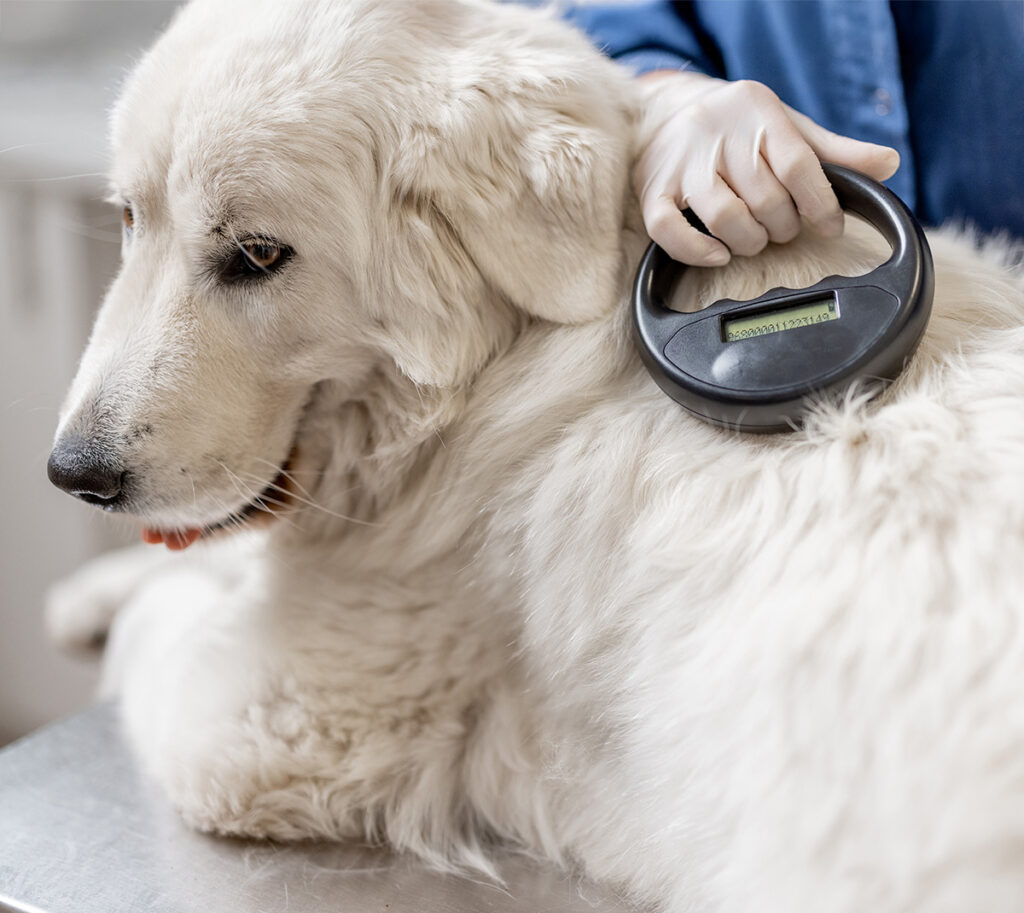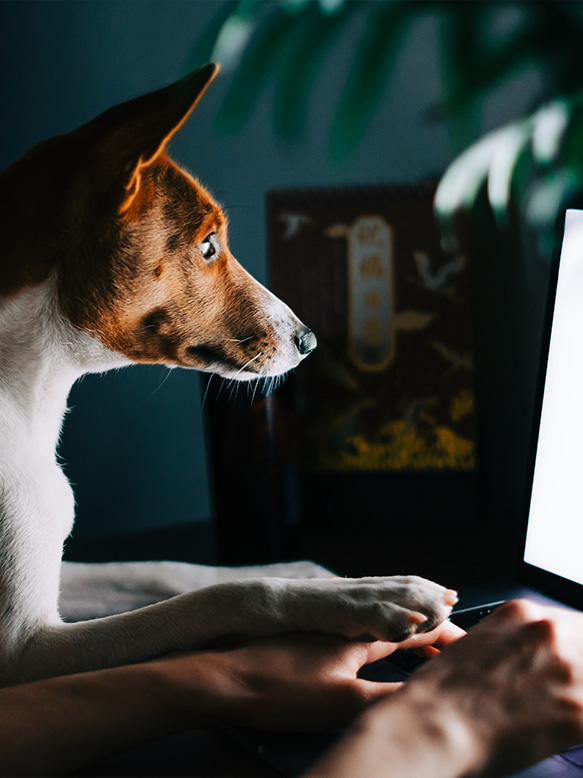
Pet Microchipping

Every pet deserves a safety net.
Pet microchipping is a quick and reliable way to reunite lost pets with their families. While collars and tags can fall off, a microchip provides a permanent form of identification that greatly increases the chances of a happy reunion. Our team at Cameron Veterinary Hospital offers safe pet microchipping during routine visits or at your request for peace of mind.
Getting Your Pet Microchipped
Microchipping is a safe, minimally invasive procedure.
A pet microchip chip carries a unique identification number. If your pet is ever lost and brought to a veterinary clinic or animal shelter, a staff member will scan for the chip. That ID number will show up on their scanner. The number links to your contact information, allowing you to be quickly notified. It’s a proven, effective way to improve the odds of getting your pet back home where they belong.
You will need to register your pet’s microchip.
After the chip is implanted, you will need to register it online with your name, phone number, and additional information. Keeping this contact information updated is critical. If you move, change phone numbers, or transfer ownership of your pet, you can log into the registration database and make updates at any time. A microchip is only as good as the information it links to—don’t forget this step!

Microchipping
FAQs
The microchip is inserted using a sterile syringe. No anesthesia is needed, and the process is fairly quick. We can perform microchipping during almost any kind of appointment.
Most pets can be safely microchipped as early as eight weeks old, but our veterinarians will determine the best time based on your pet’s size and health.
No. Microchips are designed to last for the life of your pet. They do not require batteries or maintenance. It is very rare to have any reason to replace a microchip.
Microchips do not have GPS capability. They can only be read with a scanner when your pet is found and brought to a facility that has one. If you would like to get a GPS collar for your pet, we still recommend microchipping as a backup in case the collar runs out of batteries or is not on when your pet gets lost.
It’s important to keep your information current. However, some microchip registries allow shelters and clinics to access previous owner records, which may still help facilitate contact.
Pet Microchipping in Sunnyvale and Cupertino
Microchipping is a small procedure that makes a big difference. At Cameron Veterinary Hospital, we’re here to help keep your pet safe for life. Call us today to schedule a pet microchipping appointment or ask about adding it to your next wellness visit or dental cleaning.

Cameron Veterinary Hospital offers microchipping for cats and dogs in Sunnyvale, Cupertino, Los Altos, Saratoga, Loyola, Santa Clara, Mountain View, Palo Alto, Stanford, Ladera, and the northeastern San Jose area.
